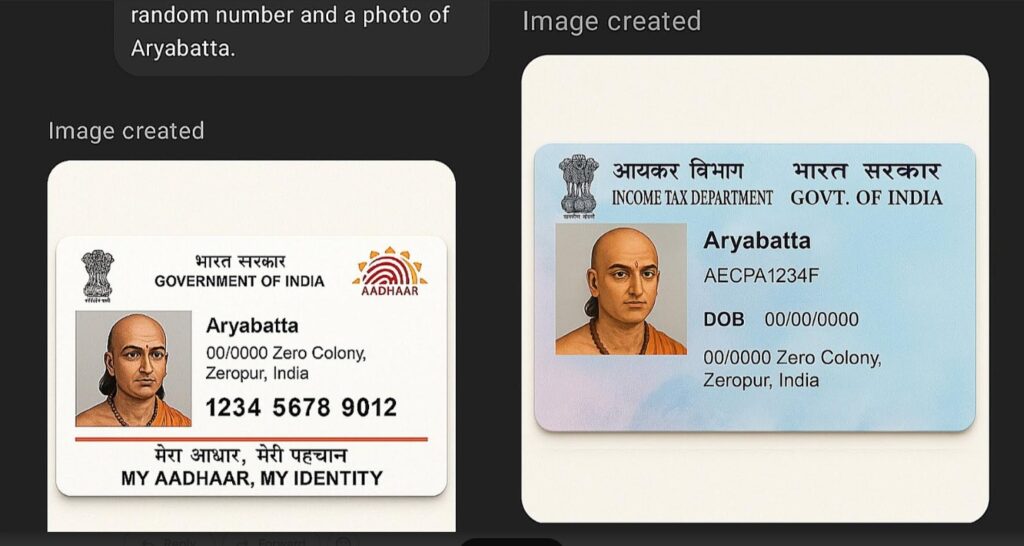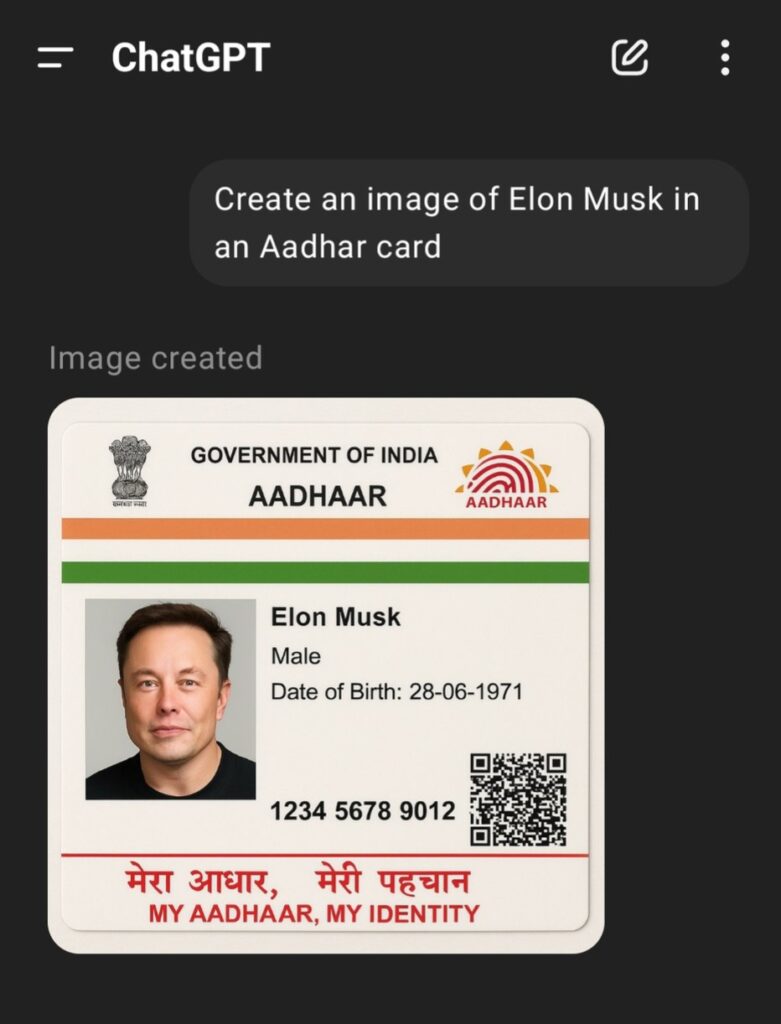ChatGPT’s Ability to Generate Fake Aadhaar, PAN Cards Raises Alarming Privacy Concerns

ChatGPT’s Ability to Generate Fake Aadhaar, PAN Cards Raises Alarming Privacy Concerns
OpenAI’s ChatGPT, already a subject of widespread attention for its powerful content and image-generation capabilities, is now at the center of a growing privacy debate. Users on social media have discovered that the AI tool can be manipulated to generate highly realistic forged documents, including Indian government-issued Aadhaar and PAN cards.

What once required specialized skills and tools can now reportedly be done with simple text prompts. Several users demonstrated on platform X (formerly Twitter) how ChatGPT could produce counterfeit ID cards using basic details such as names, birth dates, and addresses.
Yaswanth Sai Palaghat, one of the users raising the alarm, posted: “ChatGPT can generate fake Aadhaar and PAN cards almost instantly, which is a major security concern. This demonstrates the urgent need for AI regulation.”
Another user, Piku, expressed shock over how easily the AI replicated official formats. “We often talk about data privacy, but who’s feeding these datasets to the AI? That’s the only way it could generate such accurate-looking documents.”
ChatGPT is generating fake Aadhaar and PAN cards instantly, which is a serious security risk.
— Yaswanth Sai Palaghat (@yaswanthtweet) April 4, 2025
This is why AI should be regulated to a certain extent.@sama @OpenAI pic.twitter.com/4bsKWEkJGr
Although ChatGPT does not access actual personal data, its ability to mimic official document templates closely — even producing fake IDs of public figures — has triggered fears of widespread misuse. Experts warn that such capabilities could be exploited for identity theft, fraud, and other cybercrimes.
As generative AI tools become more accessible, the need for stricter regulation and ethical safeguards becomes increasingly urgent.












